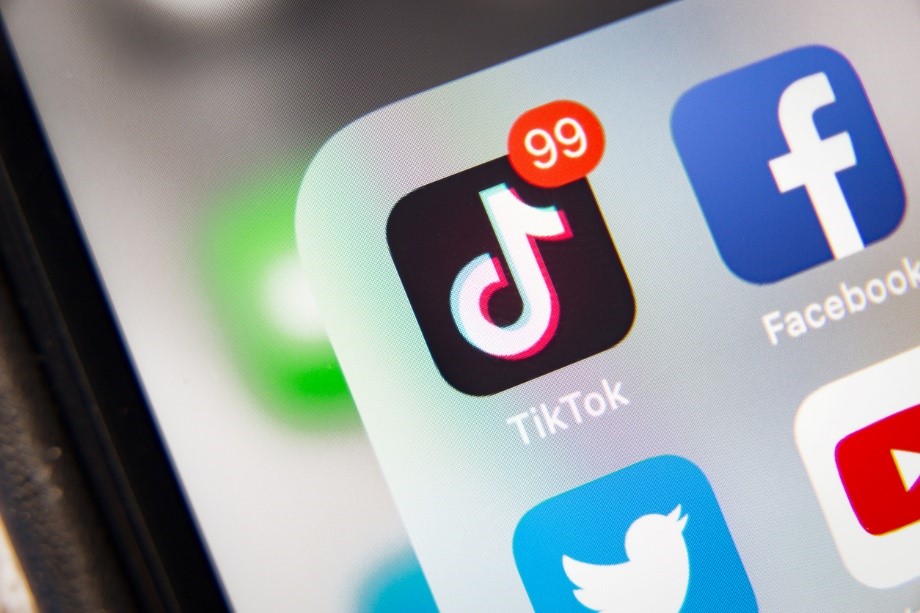What Zuckerberg says he missed and TikTok expands Creator Marketplace
Plus: New report explains how misinformation is spread online.

Meta CEO Mark Zuckerberg admitted that he missed a trend that has led to the success of rival social network TikTok.
The Facebook founder said in an interview published last week in analyst Ben Thompson’s Statechery newsletter that he “sort of missed” a way that people “interact with discovered content” on social media.
Zuckerberg said he didn’t immediately see how users were increasingly using their social networking feeds to discover compelling content as opposed to viewing media shared by their friends.
[RELATED: Enter our Workplace Wellness Award by Nov. 4 to showcase your HR, wellness & comms initiatives.]
The Facebook founder said the overall social networking trend has “by and large shifted to (as) you use your feed to discover content, you find things that are interesting, you send them to your friends in messages and you interact there.”
“So in that world, it is actually somewhat less important who produces the content that you’re finding, you just want the best content,” Zuckerberg said.
TikTok’s algorithm is based on the recommendation of compelling short videos to users based on their habits and viewing history.
Zuckerberg admitted in the interview he did not quickly respond to the growth of TikTok.
“(We were) somewhat slow to this because it didn’t fit my pattern of a social thing, it felt more like a shorter version of YouTube to me,” he said.
Why it matters: While Zuckerberg’s is one of the founding fathers of modern social media, he failed to keep up with his evolution, and may explain why Meta has floundered in recent years.
How TikTok hopes to make life easier for communicators
Last week, TikTok unveiled several features at its TikTok World conference to make it easier for communicators and brands to do their work.
The company announced updates to its TikTok Creator Marketplace in hopes of allowing brands to find creators more efficiently in addition to measuring and optimizing campaign performance.
Here are the new features according to a TikTok blog post:
- Improved search capability and integrations of a brand’s campaign insights.
- The platform can automatically generate lists of creators based on a brand’s brief in under 10 seconds.
- Open Application Campaigns, available invite-only in the U.S., U.K., Canada, and Australia, to allow brands to post details of an upcoming campaign on the platform for creators to proactively apply.
- New Invite Links to allow any brand or any agency to work with all creators, even those not enrolled on the platform.
- Gaming Anchor enables creators working with mobile gaming companies to add iOS or Android app store links to download the game to their content.
- Comment Anchor allows creators to add and pin a clickable link at the top of comments for viewers to learn more about the product or service in the video.
- Enhanced post-campaign reporting: The platform offers new branded content metrics including audience overlap, audience interest distribution, Spark Ads campaign dates, and more, that help advertisers better analyze campaign performance and video audiences.
Why it matters: TikTok’s upgraded marketplace will make it easier for communicators and brands to work with creators, which will save time and money. In addition, the comment anchor will increase engagement opportunities on TikTok for brands.
The Integrity Institute examines how misinformation is spread online
An advocacy group called The Integrity Institute has released an initial report it plans to update weekly on how social media amplifies misinformation and other harmful content.
The initial report indicates that a “well-crafted lie” will get more engagement than truthful content and that social media site features and their algorithms contribute to the spread of misinformation.
Twitter was cited as a big culprit since it allows easy sharing through retweets, followed by TikTok , which uses automation to predict engagement and make user recommendations.
“We see a difference for each platform because each platform has different mechanisms for virality on it,” said Jeff Allen, a former integrity officer at Facebook and a founder and the chief research officer at the Integrity Institute. “The more mechanisms there are for virality on the platform, the more we see misinformation getting additional distribution.”
The group analyzed nearly 600 fact-checked posts in September on a variety of subjects, including COVID-19, the war in Ukraine and midterm elections.
The report indicated Facebook was ranked behind Twitter and TikTok since it takes extra steps for users share a post there.
Why it matters: This report is additional evidence about the struggles that social networks are having to monitor and act on misinformation. Could increased misinformation eventually lead to less engagement by the public on social networks? We don’t know, but it’s something that brands and communicators should continue to monitor, especially since it could lead to less trust in information being share on social media.
Report: Kanye West is buying Parler
Deadline is reporting Monday morning that controversial rapper Kanye West is buying the right-wing social media network Parler.
Brands taking part in Halloween candy meme
Brands are capitalizing on a fun Halloween candy meme “warning” parents about objects being placed in their Halloween candy.
According to the meme database Know Your Meme, the Halloween meme parodies “a urban legend about people hiding needles and razors in candy before giving them out to trick-or-treaters.”
Here is a roundup of how brands are using the meme this season.
Please check your candy this year!! We found troll posts in ours and they won't stop repeating the same thing over and over pic.twitter.com/HGl6Wqf4hT
— Xbox (@Xbox) October 12, 2022
Please check your scientist’s candy this Halloween! We just found the Carina Nebula in a candy bar. Frightening! pic.twitter.com/gSxdivUJ46
— NASA Goddard (@NASAGoddard) October 11, 2022
Carina Nebula is a reference to the cosmic cliffs discovered by the NASA’s new James Webb Space Telescope.
Be diligent and check your child's candy this year, just found unused vacation days in this chocolate bar. No words. pic.twitter.com/KiDbeXpLSC
— LinkedIn (@LinkedIn) October 11, 2022
Be diligent and check your child's candy this year, just found a finger trap shoved inside a candy bar. No words. pic.twitter.com/PMLHBuZ8UM
— Dave & Buster's (@DaveandBusters) October 13, 2022
Be diligent and check your child's candy this year, just found an invasive silver carp shoved inside a Milky Way. No words. pic.twitter.com/4lxTErtQsX
— Oklahoma Department of Wildlife Conservation (@OKWildlifeDept) October 10, 2022
Why it works: These are examples of how organizations can expand their reach with a sense of humor.
Why it works: It’s fun to see how brands insert themselves and their message into memes that circulate online. In a world that takes itself too seriously, too often, these are examples how organizations can expand their reach to others with a sense of humor. So, find appropriate times to be funny online. Your audiences will appreciate it. Do you have a post that will make us laugh? Email a link to me. I will use the best ones in future Scoops.
Chris Pugh is a staff writer for PR Daily. Follow him on Twitter and LinkedIn. Send story ideas to ChrisP@Ragan.com.
COMMENT
2 Responses to “What Zuckerberg says he missed and TikTok expands Creator Marketplace”
PR Daily News Feed
RECOMMENDED READING
Tags: Facebook, Halloween candy meme, Mark Zuckerberg, social media, TikTok








The BIG thing he missed, and he keeps missing it, is an opportunity to do something generous and big so the public should love Meta.
He NEEDS the protection of public love because the new congress and cabinet—regardless of which party wins next month—can issue regs that cost Meta billions a year. Billions! Or even break him up.
He can GET massive public love by sponsoring medical research or some other good deed that makes ten million Americans think “thank God for those people.” Health research could actually get over ten million Americans to PRAY for the success of his program. Political leaders don’t stick it to a company if ten million American thank God or pray for the company
He can easily AFFORD a project that would win the love, and he may have been pitched to do it by six or eight of the greatest PR firms that could plan and execute the whole thing beautifully.
But it’s not happening. So he talks about what he missed but may not even realize a bigger opportunity he missed. Sometimes being brilliant and rich isn’t enough but maybe it will still happen. Or he may go for a program so people will be full of carp.
I’m asked whether it’s “realistic to even imagine” a cancer vaccine or plastic parts for human hearts. Actually both already exist. Memorial Sloan Kettering Cancer Center already has a cancer vaccine with FDA approval for limited uses. Over 100,000 patients have already received a plastic heart part often implanted now by Cleveland Clinic, Johns Hopkins and NY-Presbyterian Weill Cornell Medical Center.
What may spur successful research is that political leaders are calling for laws that could cost companies like Meta and Google billions a year. But a PR project like their backing medical research to find a cancer vaccine–led by Dr. Andrew Zelenetz of MSKCC or Dr. Shing-Chiu Wong of Weill Cornell–could turn 100 million Americans into fans of the sponsoring company. Judge whether this could protect the company from being economically emasculated in Washington.
What once seemed unrealistic—like millions of portable phones and electric cars—are now in use. So we can judge whether it’s “realistic to imagine” that a great PR project may get over 100 million Americans to favor success and further growth of Meta and Google.